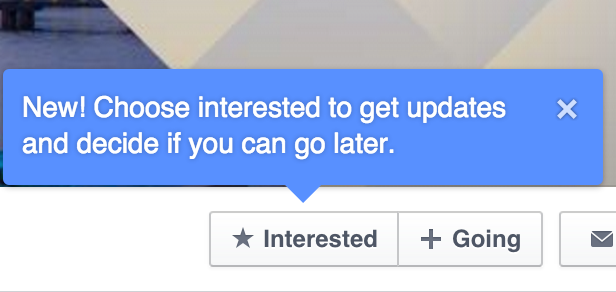Facebook has decided to scrap the ‘maybe’ button on event pages, angering commitment-phobes everywhere.
Facebook has replaced the ‘maybe’ button with a new ‘interested’ button. The change of wording is meant to increase the likelihood that people will respond to Facebook event invitations, but many have speculated that it is just a different way of not committing.
Personally, I don’t see much difference between the two descriptions. No matter what the button is called, certain people will still sit on the fence when deciding whether or not to attend an event.
For event hosts, a ‘maybe’ was a non-response, an ambiguous and downright frustrating reply. Facebook believes that changing the wording on a button, that will technically possess the same functions as before, will magically make people more honest when responding to event invites.
Facebook explained the button as a way for people ‘to get updates and decide if you can go later’. So, basically the same function as the maybe button had?
By scrapping the ‘maybe’ button Facebook has essentially taken away to most polite way to decline an invitation. They have even removed the ‘not going’ button and replaced it with an ‘ignore’ button which, to be honest, sounds completely rude.
The change is a controversial one. Some people believe that the change will force their friends to say whether they are actually intending to attend an event, while others who used the button as an excuse, will be annoyed but otherwise unaffected. Event organizers believe that it will offer a clearer picture of who is actually interested in an event. A Facebook spokesperson has said that ‘the decision is final’.
Facebook is also working on an update similar to that of WhatsApp and Facebook Messenger that will inform the event organizer of who has viewed the invitation.
This will prevent certain people from not attending an event and then later feigning ignorance and saying that they did not see the invitation.
Currently, the ‘maybe’ button has only been replaced on public events, meaning that users will still have to deal with blatant event evaders on private events.

